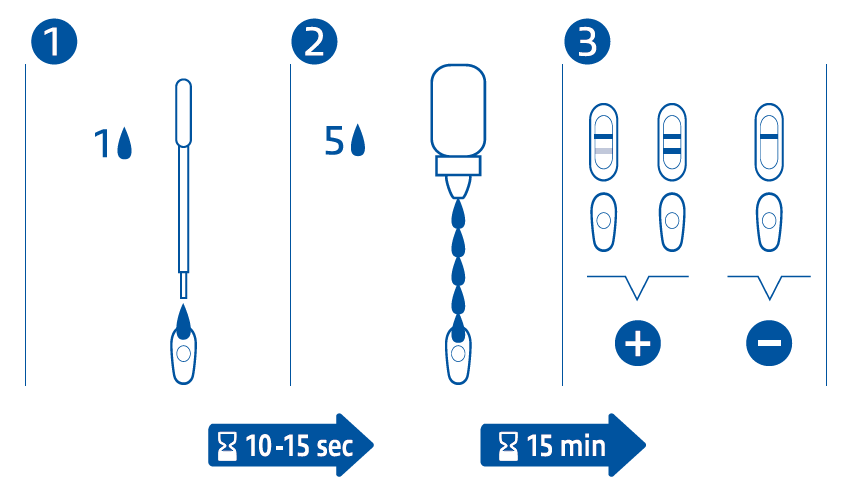Speed Ehrli
Rapid detection of anti-Ehrlichia canis antibodies
| Presentation | Advantages | |
|---|---|---|
|
Method : Membrane Immunochromatography Analysis : Detection of anti-Ehrlichia canis antibodies Sample : Whole blood with anticoagulant, serum or plasma Preparation : 2 minutes Reading : 15 minutes Storage : 24 months at room temperature Presentation : 6 tests Reliability : Compared with the reference method, Indirect Immunofluorescence (IFAT): Sensitivity: 87% |
|
| Why to use Speed Ehrli ? |
|---|
|
The vector of the disease is the brown tick (Rhipicephalus sanguineus). Ehrlichia is present throughout Europe. In endemic areas (the Mediterranean basin), the seroprevalence may be as high as 20% depending on the region (2). In these zones, Leishmaniosis is high prevalent. Co infections and differential diagnosis is difficult. After an acute clinical phase of 1 to 4 weeks, the infection becomes chronic, with hematological and biochemical abnormalities: anemia, hypoproteinemia, clotting disorders (3). |
| When to use Speed Ehrli ? |
|---|
|
Speed Ehrli can be used to detect recent infection with Ehrlichia canis but also animals that are chronic carriers of the bacteria. Speed Ehrli is ideally suited to a regular monitoring. In the event of indicative clinical signs, Speed Ehrli can be used to help the practionner to the differential diagnosis. In group housing situations, Speed Ehrli can be used to detect carrier animals prior to their introduction, thus enabling the instigation of appropriate sanitary measures. Speed Ehrli can be used to minimize the risks of contamination during blood transfusion. |
Instructions for use
Bibliography
(1) MARTIN C.: Les Ehrlichioses du chien, étude bibliographique, diagnostic et comparaison de trois kits de diagnostic serologique rapide de l’ehrlichiose monocytaire; Thèse Med Vet Lyon 2004
(2) DAVOUST P., PARZY B. Actualité des ehrlichioses. Bull.Soc.Vet.Prat.France., 1995, 79(4), 183-204
(3) DAVOUST P. et coll.: Ehrlichiose canine expérimentale. Etude clinique et thérapeutique. Rec. Med. Vet, 1991, 33-40


 Canine ehrlichiosis is caused by a bacterial infection of white blood cells: Ehrlichia canis
Canine ehrlichiosis is caused by a bacterial infection of white blood cells: Ehrlichia canis